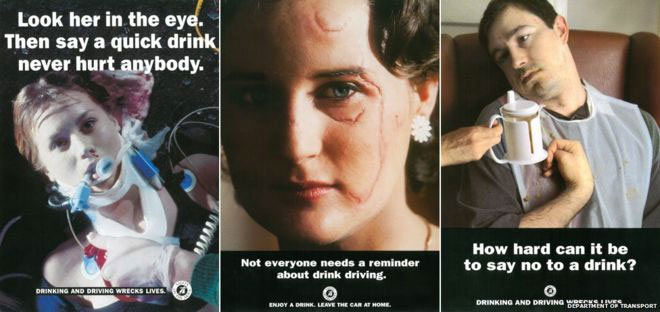Americans 16 and older spend almost an hour a day on average behind the steering wheel, according to AAA -- more time than they spend socializing with other people [PDF]. That works out to 290 hours a year, or a little more than seven 40-hour work weeks.
Perhaps because driving is so routine here, we tend not to give it much thought. For most Americans, driving is an unremarkable activity. It's easy to turn the ignition and let our mental autopilot take over.
But we're still making weighty decisions behind the wheel -- we're just not very aware of them. Our driving behavior can be a matter of life or death for ourselves, our loved ones, and total strangers. Around 40,000 Americans were killed on the roads last year, and millions more were injured.
Serious crashes aren't so frequent that people have to confront death and injury on a daily basis. And that can lull us into overlooking the potential for severe consequences when making decisions that feel mundane. Decisions like whether to hit the gas or the brake when approaching a yellow light. Or whether to reach for your cell phone on the passenger seat while you're cruising down a familiar street. Or whether to do a shoulder check for pedestrians and cyclists before making a turn.
These are, at heart, moral decisions.
In Alcoholics Anonymous, participants are asked to take a "moral inventory" of their day. Most of us who drive don't spend much time weighing the ethics of our behavior as motorists, but we probably should. Otherwise, by the time the ethical implications of our behavior are clear, it's probably going to be too late.
I think about these issues more now that I have two young children, two-year-old Kevin and two-month-old Norah. Kevin attends daycare half a mile from my house and I make the trip on foot with both of them every weekday.
Nothing alerts you to the extent of driver inattention, carelessness, and aggression quite like walking with little kids. I have learned, for example, that drivers aren't necessarily more cautious around people who are visibly pregnant or have a baby in a stroller. But some do seem to at least slow down when they see you crossing the street with an unrestrained toddler.
I think I've also become a more considerate driver. It's not enough to merely take care not to hit pedestrians (which is still a higher bar than a lot of drivers meet). I try to drive in a way that puts people outside the car at ease and won't register as a potential risk to them.
This style of driving seems to stand out on the roads, even though it costs almost nothing in terms of time.
Many people set out on a driving trip with one goal: to make it as short as possible. But the idea that we can control our travel time through our driving is mostly an illusion. Speeding, even on very long journeys, isn't the time saver we might assume.
What we can control, to a much greater degree, is the potential for harm caused by our driving.
In his book, Traffic: Why We Drive the Way We Do (and What it Says About Us), Tom Vanderbilt writes that the act of driving distorts human behavior in a few important ways. One is that it insulates us from feedback. If you do something anti-social while driving, there is no mechanism to receive the kind of negative reinforcement you would in a face-to-face setting. You might get honked or cursed at, but soon enough you'll be on your way.
I can't count the number of times I've been filled with rage or despair over something a driver did while Kevin and I were trying to cross the street we live on. The only occasions when people have ever threatened him, directly or indirectly, have involved impatient drivers.
They seem to feel justified in scaring or threatening us because we've delayed them for a few seconds. Or maybe they don't even realize they're doing it. I never really get the opportunity to communicate my displeasure, except through a rude gesture. We are somewhat powerless in the whole exchange.
That's part of why driving is so morally weighty. It has the power to cause great harm, while also shielding people in a cloak of anonymity. This is a great temptation for some people -- maybe most -- whose urge is to see how much they can get away with. Resisting this urge means thinking outside yourself and applying some ethical calculus to the situation.
Popular attitudes toward what constitutes ethical driving are not static. At one time, before the rise of MADD, most people considered drinking and driving more of a faux pas than an act of blatant disregard for human life. A concerted campaign shifted public opinion and changed laws, and the share of traffic deaths caused by drunk driving has fallen over time.
Now, speed-related collisions are responsible for about as many deaths each year -- 10,000 -- as drunk driving. We need to change how people view what's right and wrong when they're behind the wheel. What would it take for people to start thinking of common behaviors that pose grave risks -- like texting and driving, or speeding, or failing to pay attention to people walking and biking -- in the same moral terms that they now view drunk driving?





